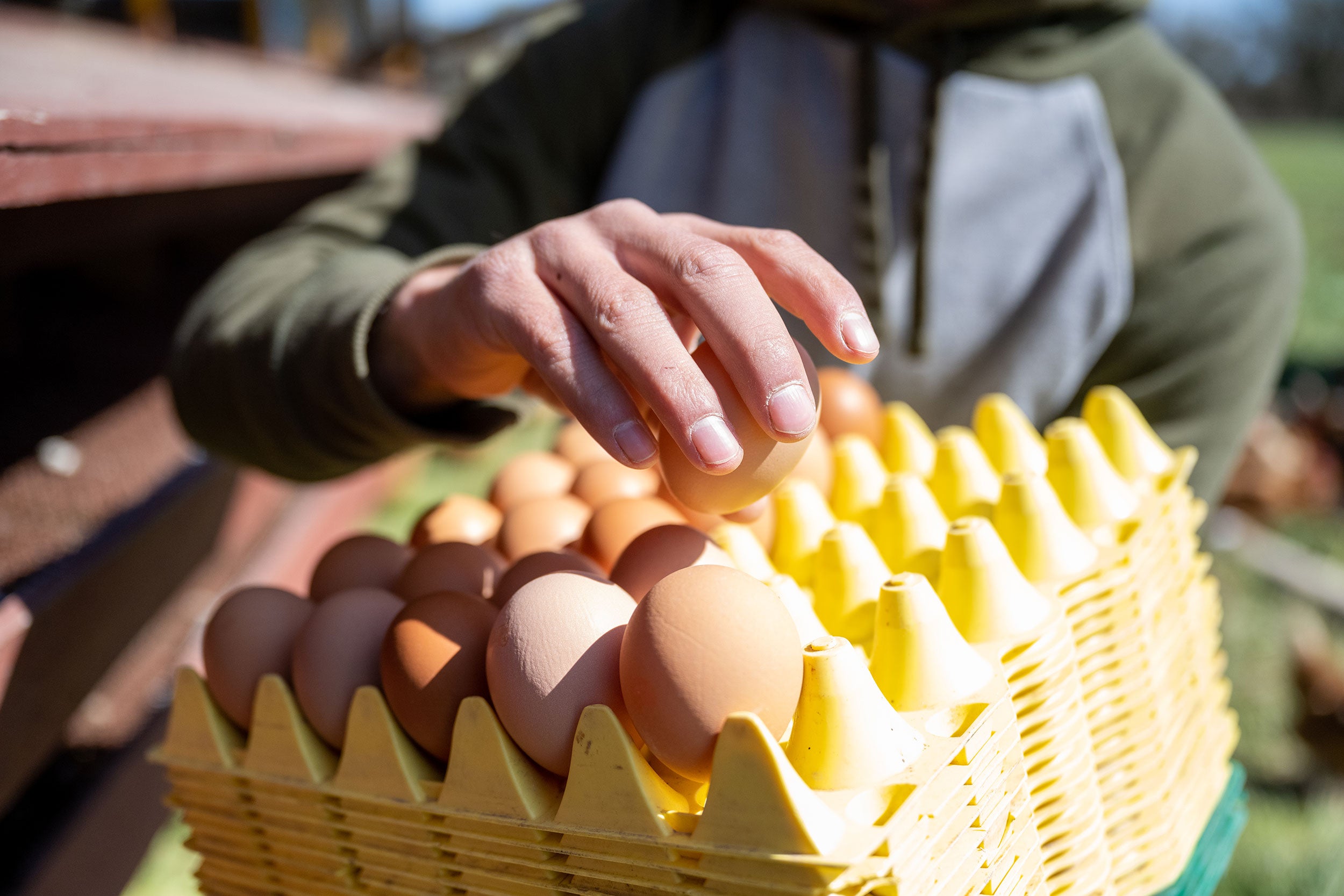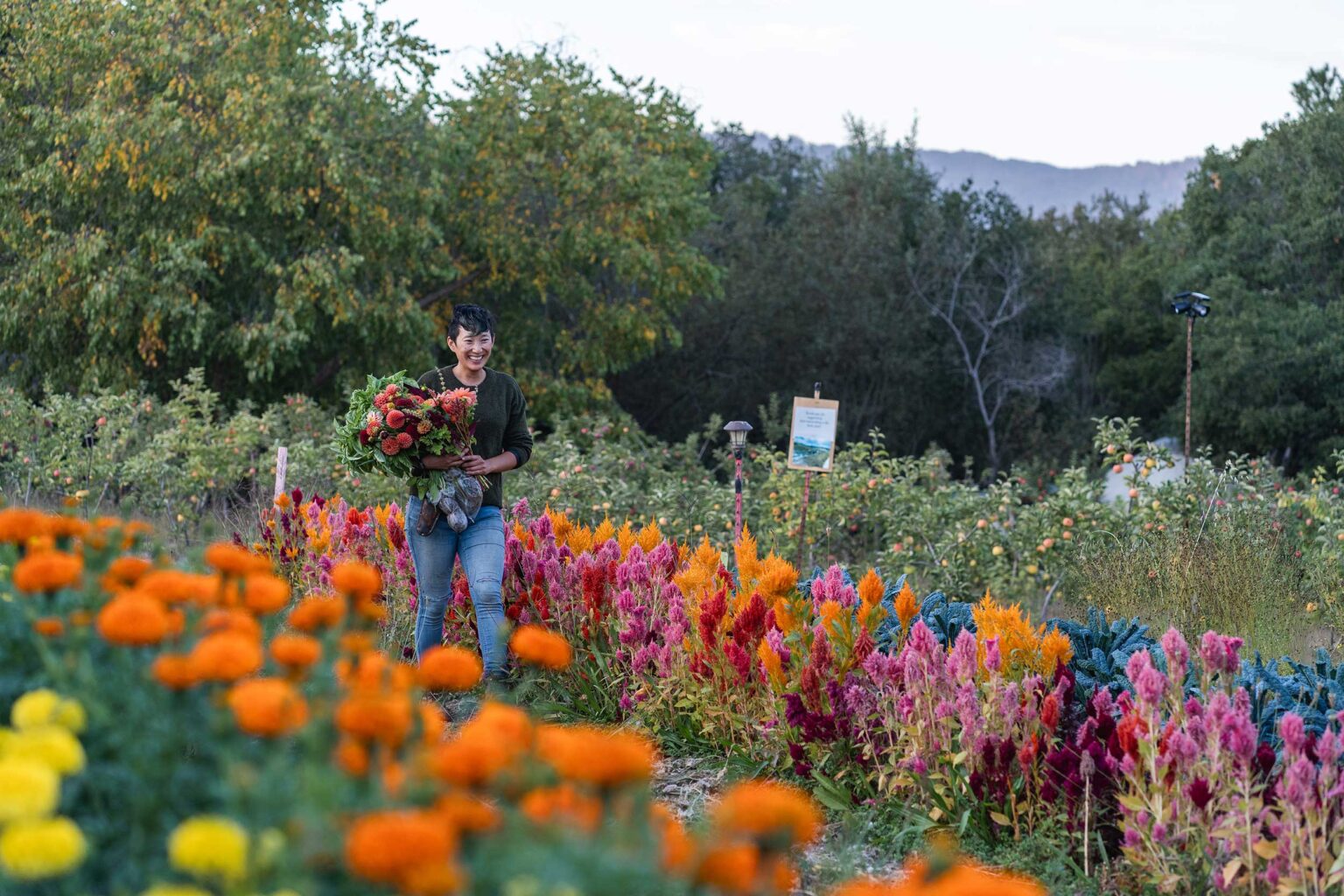It’s a new year, and guess what’s on our minds? Self-care for farmers and ranchers. Yep, you read that right. Farming isn’t just hard work; it’s everything-intensive — mentally, physically, and emotionally. Between balancing the unpredictability of weather, long hours, tight finances, and maybe even a toddler or two, farmers have a lot on their plates. And no, it’s not all homegrown vegetables.
Yet, wellness often takes a backseat. Simple self-care — whether it’s a quiet dinner at a restaurant serving their produce, a yoga class to stretch out tired muscles, or even something as basic as better boot insoles — can be a game-changer. But let’s be real: When there’s always something (or someone) to tend to, self-care can feel like a luxury.
We’re here to say: It’s not a luxury. It’s a lifeline.
The need for centered self-care
Farming is hard enough, but for Black, Indigenous, and People of Color (BIPOC) farmers and ranchers, systemic barriers like limited access to land, education, and capital pile on even more pressure. On top of all the common challenges that exist in farming and ranching, BIPOC growers face substantial additional hurdles that impact their everyday wellness and livelihood. Making space to center and prioritize their needs is paramount.

Since its inception, Real Farmer Care has made a concerted effort to address these disparities. Founded in January 2020, Real Farmer Care was created with one goal in mind: help farmers take care of themselves. The idea is simple and impactful — give farmers $100 in self-care awards to spend however they need to recharge.
Self-care, in this context, is more than a buzzword — it’s the active process of protecting and improving one’s health and happiness. Ultimately, this is viewed as an essential part of long-term success in farming. The recognition that farmers need to care for themselves to continue caring for the land and their communities is the foundation of this program.
Redefining work to cultivating care
One powerful example of how Real Farmer Care is making a tangible difference in the lives of farmers is Kellee Matsushita-Tseng. Kellee is a Yonsei, 4th generation queer Japanese Chinese American farmer in Santa Cruz, CA, and a seed steward at Second Generation Seeds. Kellee’s journey into farming was born out of a desire to reclaim ancestral knowledge and provide culturally significant foods to communities that need them.
“Farming has been one of my greatest teachers,” Kellee shares. “It was only when I began to create my own growing spaces that farming began to feel like a place of care, restoration, and hope.” For them, farming is not just about growing food — it’s about healing and community-building.
“Some of my entry points to farming were through exploitative and harmful white spaces. Despite the initial joy of connecting to and working with the land, it wasn’t until I began creating my own growing spaces that farming started to feel like a place of care, restoration, and hope,” says Kellee, reflecting on the importance of mental health in farming. “Through farming, I’ve come to understand how I want to build community, foster relationships with the land, and, ultimately, how to care for myself.”
A healthier world from the ground up
Real Farmer Care’s support allows farmers like Kellee to prioritize their health, ultimately making them more effective stewards of the land and more present members of their communities.
Clara Coleman, founder of Real Farmer Care, nails it: “I view the impact of Real Farmer Care as a positive feedback loop. The more we care for our farmers and support their well-being, the more successful farmers can be at caring for themselves, our communities, and the land.”
And it’s not just Real Farmer Care doing the heavy lifting. Programs like the Brighter Future Fund are stepping in with microgrants that help farmers weather market changes, fight climate change, and ensure fairness for underserved farmers. These aren’t just nice-to-haves — they’re the building blocks of a more sustainable and equitable food system.
So, here’s the big takeaway: When we care for our farmers, and when farmers care for themselves, we care for the future of food. Prioritizing wellness isn’t just about keeping farmers going; it’s about ensuring the whole food system thrives. After all, healthy farmers mean a healthier world for all of us.
Take our survey to help us better understand, develop, and offer the most needed self-care support for farmers and ranchers: https://docs.google.com/forms/d/e/1FAIpQLScn3r5dFEn2vrvQQdqkQZ-dKT4XUFey7_NSLo_DS23GPZzSLA/viewform
Interested in Real Farmer Care support? Apply here (the initial round is closed, but we are distributing awards as funds last): https://forms.monday.com/forms/eb7a96876157c684cc52df0dbbcdf07c?r=use1
This article was funded by and published on behalf of American Farmland Trust.


